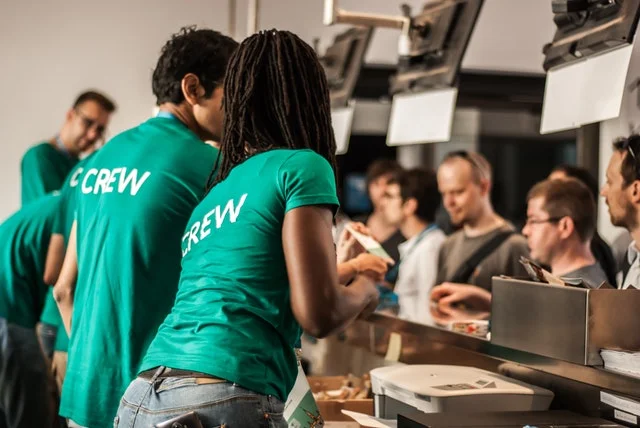The challenge of changing your career path
The job market has experienced a big revolution in recent years; facilitating smooth job changes, allowing a person’s career to be more fluid and experimental. According to a study conducted by the Bureau of Labor Statistics on how many jobs people hold in a lifetime, on average people hold 11.7 jobs between the ages of 18 and 48.
The reasons behind a career change are varied: new interests, the desire to progress to a higher level and the need to work flexible hours are all common factors. Or, like I have done, you finally decide to turn your passion into something concrete, aiming to fill a gap you see in the industry.
For more than ten years I worked in investment banking as a broker, and yet, fashion was always my number one interest. For this reason, I started organising private sales at my home for my busy girlfriends who wanted to access the world of fashion in an easy way. This is when I fully realised the universal confusion around clothes sizing and for this reason I decided to create my own solution.
Four years ago I quit my job in finance to dedicate all of my time and energy into my passion, even if this meant taking the risk of jumping into the unknown.
"You've got to find what you love. And that is as true for your work as it is for your loved ones. Your work is going to fill a large part of your life, and the only way to be truly satisfied is to do what you believe is great work. And the only way to do great work is to love what you do”. These words from Steve Jobs at Stanford University in 2005 highlight how important is to do a job that you love, as it will be the main occupation in your life. Doing a job you love is a privilege that will guarantee satisfaction and exciting challenges. Why put up with a job you don’t like? A job that doesn’t provide fulfillment or give you the challenges and the chances you are looking for?
Settling for something is often not enough; with the many opportunities in this fast evolving world, driving your career towards a path you are really passionate about it can be easy if you plan it strategically.
Here there are a few things I considered when I evolved my career:
Assess your skills, define your interests and make a plan
What is it you really want to do? What inspires you and makes you feel hungry for more knowledge and initiative? Everything starts here.
Review your previous experiences to identify the positives and outline activities you’d like to focus on. An equally important step is defining the skills and expertise you acquired in the past and apply to your next job role. Knowing your strengths, but also your weaknesses, is fundamental to building a professional profile and presenting yourself in the most competitive way possible. During this phase, it is helpful to write down a plan, being specific and honest about it. Take into account: finances, transitional time, education, etc. Make an accurate plan that includes your skills, interests, resources and go from there.
Look for mentors and seek advice
A career shift can be exciting but overwhelming. Be prepared for a period of instability which is completely natural when making life-changing decisions. In order to manage this stress and uncertainty, find a mentor in your industry.
A mentor is someone who has already been through the same process, who has lived through the challenges and concerns you will experience. It’s important to find a person who is supportive, offering guidance and introducing you to the right network.
Networking is everything
Finding a solid network is key when starting a new business. Engaging with others who have experience in your new industry can lead to interesting job opportunities, contacts, partnerships and resources. Industry insight will also help you to understand if you are really interested in that particular field. Take a leap and throw yourself out there: join events, conferences and meetings in the field you’d like to work in and start to create your own business network.
Don’t rush
Changing the direction of your career can be the chance to revolutionise your life. For this reason, don’t rush. It is important to be mindful; taking time to evaluate, draft a plan and build a good network.
Testing the water is also recommended before making the “big decision”. Try out some initial activities in the industry you are interested in. If you choose to change your career path, you need to be patient and consider your next move carefully even if it’s not easy. Whilst it may take time to find the right opportunities, it can be an important, progressive and personal path to learning more about yourself and your ambitions. Turn this into an inspirational and insightful journey for both yourself as a professional, and as an individual.
Entrepreneurship is something you have inside yourself: you need to feel the desire to invent a solution or provide a service that will be useful to other people. I have been inspired by the experiences of serial entrepreneurs in my circle of family and friends. With their help I learnt from a young age to avoid risky or rushed decisions, dedicating time and energy to nourish my desire of being an entrepreneur.








